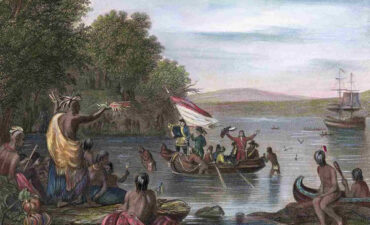Why is Alexander the Great not known as “Alexander of Macedonia”? Alexander the Great is one of the most famous and celebrated figures in world history. He was a powerful military leader and conqueror who expanded the Macedonian Empire to its greatest extent, and his legacy has continued to inspire people for centuries. However, one curious aspect of Alexander’s identity is that he is not commonly known as “Alexander of Macedonia.”
In this blog post, we’ll explore the reasons behind this historical anomaly.
To begin with, it’s important to understand the historical context in which Alexander lived. He was born in 356 BC in the kingdom of Macedon, which was located in what is now modern-day Greece. However, at the time, Macedon was considered a distinct political entity with its own culture, customs, and language. The Macedonian people were not fully integrated into the broader Greek world, and they were often viewed as uncivilized by their southern neighbors.
When Alexander ascended to the throne in 336 BC, he inherited a kingdom that was still seen as something of an outsider in the Greek world. In order to legitimize his rule and gain acceptance from the more established Greek city-states, Alexander set out to conquer a vast empire that would establish Macedonian dominance over the region.
As Alexander expanded his empire, he encountered a variety of different cultures and peoples. One of the most significant of these was the Persian Empire, which had been a dominant force in the Middle East for centuries. Alexander’s conquest of Persia was a key turning point in his career, and it helped to solidify his reputation as a military genius and a conqueror of unparalleled ambition.
However, Alexander’s success in Persia also had a significant impact on his identity. As he conquered more and more territory, he became known not just as the king of Macedon, but as the ruler of a vast empire that stretched from Greece to India. This new identity was reflected in the titles that Alexander adopted, such as “King of Asia” and “King of Kings.”
In fact, Alexander’s conquests were so far-reaching that they had the effect of erasing his original identity as a Macedonian. Instead, he became known simply as “Alexander the Great,” a title that reflected his achievements and his status as a ruler of a vast and diverse empire.
Of course, it’s worth noting that not everyone accepted this new identity for Alexander. Some of his Macedonian subjects may have viewed him as a conqueror who had lost touch with his roots, while some Greeks may have viewed him as an outsider who had usurped their cultural heritage. Nevertheless, Alexander’s legacy as a world-conquering hero has endured, and his name is synonymous with greatness and ambition.
In conclusion, while Alexander the Great was originally a Macedonian king, his conquests and achievements were so far-reaching that they transformed his identity into that of a world-conquering hero. His legacy as a military genius and a cultural icon has continued to inspire people for centuries, and his name has become synonymous with greatness and ambition. Although he may not be known as “Alexander of Macedonia” today, his impact on world history is undeniable, and his legacy will continue to be studied and celebrated for generations to come.








